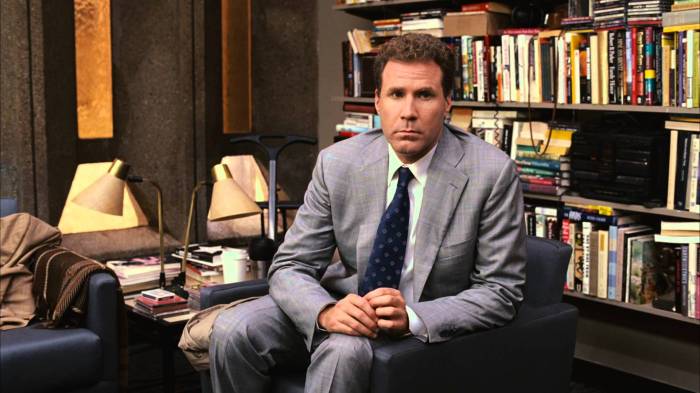I watched one of my favorite feel good movies last night; Stranger Than Fiction. It’s actually kind of a dark comedy, but I find it really humorous. The story, for those unfamiliar, is that of Harold Crick, an average middle-aged man living a simple if not mundane 9-5 life as an IRS auditor, with no real ‘life’ to speak of. He brushes his teeth 38 brushes each way, he ties his neck tie in a single Windsor knot every single day, and his wrist watch is arguably his only companion.

It’s not until he hears a woman’s voice following him throughout his daily life and narrating his actions that he seems to finally understand how empty his life is. As the narrator is clearly very right about some harsh truths in his life, he seeks out the help of first a psychiatrist (who wouldn’t?), and then a literature professor (played magnificently by Dustin Hoffman).
Through several scenes of trial and error, Harold realizes he is not in control of his own destiny, is told to go live the life he’s always wanted to live. He buys a strata-caster and learns a guitar song, pursues a love interest with a woman he is auditing, and gains new friends along the way. Oh yeah, and it turns out his narrator is well known published author Carol Eiffel, who is notorious for killing off her heroes in her novels (played by Emma Thompson, who is brilliant as her eccentric, dark, shut-in character Eiffel).
While the plot appears lighthearted and comical at the surface, it actually deals with a lot of the same struggles and dilemmas we all face at some point. Life and death, living life how you want to live it, love, loss, accepting harsh truths, and power of the written word (this one is more of my opinion than a real theme in the film I think). Harold goes through so many peaks and valleys (and they are pretty deep valleys and pretty high peaks) and he just keeps persevering. Meanwhile, his narrator can’t think of anything except how to kill Harold.
In the end, Eiffel confesses that she just couldn’t kill anyone anymore, fictional or otherwise (but who’s to say all of her characters weren’t real at one point?). She claims that it was Harold’s complete acceptance of his death that made her realize she couldn’t keep killing off innocent, great people in this life. Harold, who was completely ready to die in the name of poetic and ironic justice, was one of those people that should probably stay on this earth a while longer.
I love Will Ferrell in this more serious role. His moments of deflation and his scenes of undulated happiness play so organically on screen, and Maggie Gyllenhaal makes an excellent scene partner with Ferrell. Whether they are bickering in a bakery or whispering sweet nothings to each other in bed, their unlikely chemistry is so satisfying to watch unfold .

Stranger Than Fiction is an odd, quirky, humorous, touching, and thoughtful film about life, love, death, and a lot of literature. Anyone who’s ever written a poem, short story, novel, or anything fictional will relate to this movie on an even deeper level. An old creative writing professor of mine said that as painful as it usually was, we had to ‘kill our babies’ while writing. What she meant was, even though we may love a certain character or plot development, sometimes it’s just not for the best of the story. I always begged and pleaded to let me keep that one scene I just loved so much. In hindsight, she was right. My character would have never done or said or been where I wanted her to be in that favorite chapter of mine, and any outside reader could feel the unnatural struggle there. I was just too close to the story.
Anyways, I digress. Rent this movie (Google Play- only $2.00!), prepare to laugh, ponder, maybe tear up a bit, and feel the need for an introspective moment as the credits start to roll.